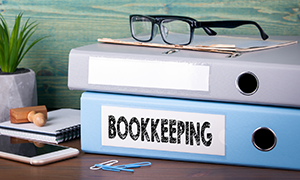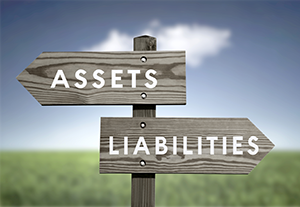 Home-based businesses can be financially rewarding and provide a certain amount of flexibility with your day-to-day schedule. Here are some tips to keep your business running at full steam.
Home-based businesses can be financially rewarding and provide a certain amount of flexibility with your day-to-day schedule. Here are some tips to keep your business running at full steam.
- Stay on top of accounts receivable. It’s easy to get caught up with fulfilling your business obligations while invoices you’ve sent out go unpaid. Agree to payment terms in advance with new customers and immediately – but politely – communicate with them as soon as they miss a payment deadline. Keep current with regular invoicing and collections.
- Keep your bookkeeping records up-to-date. You may not realize you have an unpaid invoice that’s several months old unless your bookkeeping is up-to-date. Keeping accurate books involves more than balancing your bank accounts once a month. In addition to your monitoring your bank accounts, also consistently look at your accounts receivable, accounts payable, any debts (credit card, car loans or other borrowings), and all money you invest in your business. Ask for help if you don’t have enough time to do the bookkeeping yourself, or if you need help properly setting up your bookkeeping software.
- Check on permit requirements. Depending on what type of home-based business you have, you may be required to obtain various permits, licenses or other registrations. If you have not already done so, check with your town or city for local requirements. The Small Business Administration is also a good source to research information on permits.
- Get insured. Obtain adequate insurance for the type of operation you’ll be running. Besides the insurance required for business activities, you might consider adding a rider to your homeowner’s policy for liability protection should an accident occur on your property.
- Stay on top of technology. While you may not need a top of the line computer, be sure that the technology equipment you use can handle the bandwidth of everything you’ll ask it to do, including video calls, software apps and data storage. Also consider scheduling a time for your internet provider to visit your home to make sure everything is in working order and your security protocols are top notch. Have a back-up plan in place for when a device breaks down, including where you’ll go to have it repaired.
- Cash in on tax breaks. Take advantage of the tax breaks available to home-based businesses, including deductions for supplies, equipment and vehicle expenses. You may even be able to deduct the cost of your home office, including a pro-rated amount of your real estate taxes and utilities, if certain conditions are met.
- Set aside money to pay your taxes. Ask for help to calculate how much of your incoming cash you should be setting aside to pay your federal, state and local taxes. Consider opening a separate bank account to transfer your tax money into.
If you are concerned about protecting your valuables, here are several suggestions to consider for protecting them from would-be thieves:
- Rent a safe deposit box. It may make sense to keep seldom worn jewelry, coins and other important documents in a traditional safe deposit box at your local bank. But beware if you go this route, as it is often inconvenient to retrieve your valuables, it is easy to forget what is in the box and who has the key. Plus, it’s important to fully understand your rights under the contract terms.
- Install a home safe. There are several types of in-home safes you can choose from, including wall, floor, free standing, fire and gun safes. There are also diversion safes for small items that are designed to look like everyday household objects that can blend in with its surroundings.
 Secure your house. In addition to installing a state-of-the-art home security system, there are several other ways to physically secure your home. Consider updating your locks every several years, and remember to actually use them! Many burglars are looking for easy targets, and unlocked doors and windows provide easy access. Also consider reinforcing your doors and windows, and installing motion-sensing lights both inside and outside.
Secure your house. In addition to installing a state-of-the-art home security system, there are several other ways to physically secure your home. Consider updating your locks every several years, and remember to actually use them! Many burglars are looking for easy targets, and unlocked doors and windows provide easy access. Also consider reinforcing your doors and windows, and installing motion-sensing lights both inside and outside.
Be prepared if a theft does occur
Unfortunately, thieves can still sometimes steal your valuables despite multiple layers of protection. Here are some suggestions to prepare you if any of your valuables go missing:
- Be familiar with your insurance policy. Read your insurance policy to know what items are covered. Review your policy once a year or whenever you acquire another valuable asset.
- Get an appraisal. It may be difficult to know how much insurance you need without a proper valuation of your assets. Some assets may be worth much more than you think, while other assets may be difficult to pinpoint a value without professional assistance.
- Keep a home inventory. Create a list of all your valuables that includes photographs and purchase receipts. If an asset is stolen, having this inventory always up-to-date can help quickly jump-start filing an insurance claim.
Knowing your net worth and understanding how it is changing over time is one of the most important financial concepts that everyone needs to understand. This number is used by banks, mortgage companies, insurance companies and you! Your net worth impacts your credit score, which in turn impacts your interest rates and things as mundane as the amount you pay for auto insurance.
A simple definition
- Net worth is the result of taking all the things you own (assets) minus what you owe others (debts and liabilities).
- Assets include cash, bank account balances, investments, your home, vehicles or anything else that you could sell today for cash. Assets also include any businesses or business interests you own.
- Liabilities are what you owe others, such as a mortgage or car loan, and any other debt, like credit card or student loan debt.
 Your net worth changes over time, reflecting how you spend your money. For example, if you have tons of bills and spend more than you bring in, your bank account balances will be lower. If you spend a lot on your credit cards, your debt will go up. The net effect is a lower net worth.
Your net worth changes over time, reflecting how you spend your money. For example, if you have tons of bills and spend more than you bring in, your bank account balances will be lower. If you spend a lot on your credit cards, your debt will go up. The net effect is a lower net worth.
Everyone has a net worth
Yes, everyone. Even a 6-year-old with money in their piggy bank has a net worth. If your child is saving up for a bike, they will convert one asset (cash) into another asset (their new bike)!
Calculating your net worth
- Step one. Reconcile your bank accounts and loans. Try doing this every month, as these are the easiest parts of your net worth to track and calculate.
- Step two. Calculate the value of all your remaining assets. For some of your assets, such as stocks, you can go online and find the current value of the stocks you own. For other assets, you’ll have to estimate what you could sell that asset for today.
- Step three. Add up all your asset values, then subtract all your debts. What you’re left with is your net worth (and yes, your number could be negative)!
Why you should know your net worth
Knowing your net worth contributes to the big picture of your financial circumstances. Here’s why it’s beneficial to know your net worth:
- You want to apply for student loans. You’ll likely need to submit an application that details all your cash and other assets when applying for student loans. If your net worth is high enough, you may have to foot some of the tuition bill yourself.
- You want to get insurance. Some types of insurance use your credit score as part of the calculation for determining your premium payments. Knowing if you have a high net worth may help in obtaining a favorable premium amount.
- You want to diversify your investments. Certain investments are available only to individuals who have a high enough net worth.
- You want to buy a home. Banks want to see that you have plenty of cash when compared to your debts. If you have too much debt, you may need to either pay down the debt or increase your down payment.
Knowing your net worth and how to calculate it can help you achieve some of your financial goals. Please call if you’d like help calculating and understanding your net worth.

Whether you are hiring for the first time, filling an open position, or conducting annual performance reviews, finding a salary range that attracts and retains valued employees can be a difficult task. Here are some suggestions to help make the process a bit easier for you and your company:
- Know what your business can afford. Like any business expense, you need to know how it will affect your budget and cash flow. Make a twelve-month profitability and cash forecast and then plug in the high end of the annual salary range you are considering to see if it’s something your business can absorb. After all, the greatest employee in the world can’t help you if you don’t have the money to pay them. Don’t forget to account for increases in benefit costs, especially the escalating cost to provide healthcare. Once you establish a budget, you can allocate your spending plan to your payroll.
- Understand the laws. In general, the federal government sets the minimum requirements (minimum wage of $7.25 per hour, overtime rules and record keeping requirements). States and localities often add their own set of rules. For example, the state of Illinois, Cook County and the city of Chicago all have different minimum wage requirements. If you are located in Chicago you need to adhere to the highest rate. So research all payroll rules that apply to your location at the beginning of the process. When reviewing the rules, don’t forget that different rules often apply depending on the number of employees in your business.
- Review and update job descriptions. Take some time to review key jobs and update them as appropriate. With new positions, note the exact tasks and responsibilities you envision for the role. Then, think about the type of person that will succeed performing these responsibilities. Once you have a clear picture of who you are looking for, you can begin to build a detailed job description and narrow in on a specific salary range.
- Establish value ranges and apply them. Value is key when determining the perfect salary amount. Define the range of value for the position and then apply that valuation to the current person’s performance within the defined pay range. Use websites and recruiters to establish the correct range of pay, then apply experience and employee performance to obtain a potential new salary amount. Remember, size of company, location and competitiveness of the job market are all factors to consider.
- Factor in company benefits. A strong suite of employee benefits is a powerful tool to couple with a competitive salary. Don’t be afraid to communicate their value to prospective and current employees (they help with retention, too!). According to Glassdoor, health and dental insurance are the most important, but flexibility is close behind – over 80 percent of job seekers take flexible hours, vacation time and work-from-home options into consideration before accepting a position.
Finding the right salary can be tricky, but with some preparation and research, you can find the balance that satisfies the needs of your business and your employees.

When was the last time you reviewed your insurance coverage? An annual insurance review makes good financial sense. Here are points to consider as you review your various insurance policies.
Health care – If you have an individual policy, investigate whether your employer, union or professional association offers a less expensive group policy.
Long-term care – Long-term care insurance may be advisable if you’re between the ages of 55 and 72 and you don’t have enough assets to fund long-term care.
Life – The protection you need depends on the number of people who rely on you for support. Whole, variable, and universal life policies combine insurance coverage with an investment future. If you want insurance only, consider term life.
Disability – Studies show that less than one in six Americans own enough disability insurance to provide a comfortable lifestyle during a two-year disability. Disability coverage is generally limited to 60 percent to 70 percent of salaried income. If you have adequate emergency funds, electing a longer waiting period for coverage to kick in will reduce your premiums.
Homeowners – With fluctuations in the real estate market, it’s possible that your home is now under- or over-insured. Coverage equal to the current replacement cost (excluding land), not its original cost, is advisable.
Auto – Liability insurance is a must, but consider dropping collision coverage if you can afford to repair or replace the vehicle on your own. Collision insurance is probably required if your car is financed or leased.
Umbrella liability – Personal liability coverage is included with most homeowner and auto policies. However, if you own substantial assets, umbrella coverage will provide additional protection at minimal cost.
Unnecessary insurance – Carefully examine policies with narrowly defined coverage (such as credit, travel, or cancer insurance). They often duplicate other coverage in policies you may already own.
One of the most common reasons businesses fail is due to lack of understanding of cash flow. The same can be said about your household’s personal financial statement. So what is this cash flow concept, how does it apply to you, and what are some ways to improve yours? In Part 1 of this two-part article, we explained explain what cash flow is and how to determine your cash flow. In Part 2, we’ll give you some ways to improve your cash flow.
Identify your challenges. See if you have months where more cash is going out than is coming into your bank account. This is often when large bills are due. Try to balance these known high-expense months out over the year if at all possible. Common causes are:
- The holidays
- Property tax payments
- Car and homeowners insurance
- Annual income tax payments
- Vacations
Build a reserve. If you know there are challenging months, project how much additional cash you will need and begin to save for this reserve in positive cash months.
Cut back on annuities. See what monthly expense drivers are in your life. Can any of them be reduced? Can you live with fewer cell phone add-ons? How about cutting costs in your cable bill? Is it time for an insurance review?
Shop your current services. Some of your larger bills may create an opportunity for savings. This is especially true with homeowners and car insurance.
Don’t confuse savings with cash flow. Think of your savings as the accumulation of positive cash flows from prior months. A high savings balance can often mask a monthly cash flow problem where more is going out than is coming in over a period of time.
Create savings “expense” to add to cash flow. Consider adding a “bill to yourself” in your cash outflows. This money saved is a simple technique to create positive cash flow each month to build an emergency reserve.